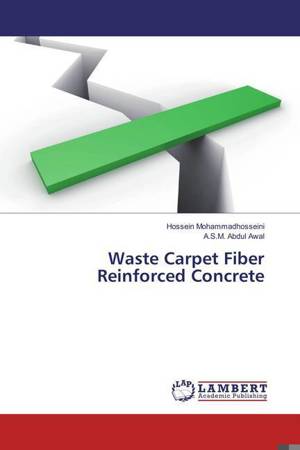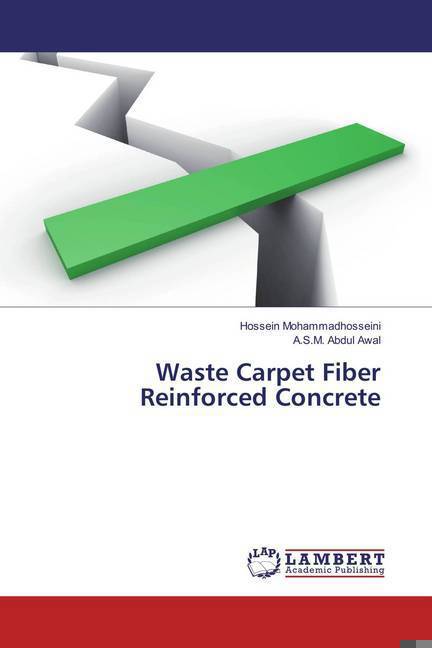
- Afhalen na 1 uur in een winkel met voorraad
- Gratis thuislevering in België vanaf € 30
- Ruim aanbod met 7 miljoen producten
- Afhalen na 1 uur in een winkel met voorraad
- Gratis thuislevering in België vanaf € 30
- Ruim aanbod met 7 miljoen producten
Zoeken
Waste Carpet Fiber Reinforced Concrete
Hossein Mohammadhosseini, A.S.M. Abdul Awal
Paperback | Engels
€ 39,45
+ 78 punten
Omschrijving
There is no doubt that cleaner and efficient management of various waste generations are given more attention for maintaining sustainability in green construction. The utilization and recycling of waste materials is one of the fundamental issues of waste management strategies in many parts of the world. The advantages of recycling are to reduce the environmental pollution, landfilling and disposal of wastes and also preservation of natural resources. By development, mechanization and technological inventions, huge amount and different types of waste materials from pre-and post-consumers are produced every year. In the construction industry the idea of sustainability allowed the use of waste products from industries and agricultures to replace raw materials, such as fine and coarse aggregates, cement and fibrous materials. It leads to sustainable, green and environmentally friendly construction by means of reducing the price of the components instead of disposal of the materials.
Specificaties
Betrokkenen
- Auteur(s):
- Uitgeverij:
Inhoud
- Aantal bladzijden:
- 80
- Taal:
- Engels
Eigenschappen
- Productcode (EAN):
- 9783659854897
- Uitvoering:
- Paperback
- Afmetingen:
- 150 mm x 220 mm

Alleen bij Standaard Boekhandel
+ 78 punten op je klantenkaart van Standaard Boekhandel
Beoordelingen
We publiceren alleen reviews die voldoen aan de voorwaarden voor reviews. Bekijk onze voorwaarden voor reviews.











